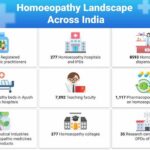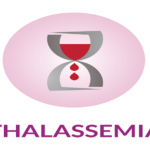Ministry of Health and Family Welfare is observing National Nutrition Week from 1st September to 7th September, 2017. The theme of this year’s National Nutrition Week is “Optimal Infant & Young Child feeding Practices (IYCF): Better Child Health.” During this period, a week-long campaign is also being carried out to create mass awareness about the importance of appropriate nutrition in protection and promotion of health and wellbeing of children.
For promotion of Optimum IYCF practices, MoHFW has launched “MAA- Mothers’ Absolute Affection” programme to improve breastfeeding coverage and appropriate breastfeeding practices in the country. Around 3.7 lakhs ASHAs and around 82,000 healthworkers including programme managers at district and block level, doctors (MOs), staff nurses (SNs) and ANMs have been sensitized for breastfeeding promotion strategies under MAA programme and more than 23,000 health facility staffs (MOs, SNs and ANMs) are trained in IYCF training. In addition, more than 1.49 lakh mothers’ meetings were also carried out by ASHAs at village level to sensitize mothers regarding importance of appropriate breastfeeding practices.
Community sensitization activities such as mothers’ meetings and block/ district level workshops with programme managers, services providers’ e.g MOs, SNs and ANMs along with FLWs are also planned during the National Nutrition Week (NNW). Village Health and Nutrition Days (VHNDs) will be held at village level in Anganwadi centres to increase the awareness and bring about desired changes in the IYCF practices in the community. In addition, “National Guidelines on Lactation Management Centres in Public Health Facilities” have been recently released to facilitate establishment of lactation management centres for ensuring that the sick and pre-term babies are fed with safe human breast milk.
Breastfeeding is an important, efficient and cost-effective intervention promoting child survival and health. Breastfeeding within an hour of birth could prevent 20% of the newborn deaths. Infants who are not breastfed are 15 times more likely to die from pnuemonia and 11 times more likely to die from diarrhoea than children who are exclusively breastfed, which are two leading causes of death in children under-five years of age. In addition, children who were not breastfed are at increased risk for diabetes, obesity, allergies, asthma, childhood leukaemia, sudden infant death syndrome etc. Apart from mortality and morbidity benefits, breastfeeding also has tremendous impact on improved IQ.
The trend of breastfeeding has shown an upward trend. As per recent data, initial breastfeeding has been nearly doubled in last decade. i.e from 23.4 per cent to 41.6 per cent (NFHs-3, 2005-06 and 4, 2015-16). Significant improvement has also been reported for exclusive breastfeeding as proportion of children under age 6 months exclusively breastfed, has gone up to 54.9 (NFHS-4) per cent from 46.4 per cent (NFHS-3). However, there is further scope of improving initial breastfeeding rates considering the high proportion of institutional deliveries in the country.







